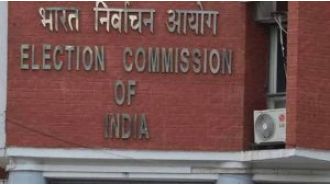The pros and cons of cosmetic tourism.
They are often close to death.

When it comes to plastic surgery, there's no doubt that we've all heard horror stories of botched procedures and terrible outcomes. But despite these cautionary tales, Turkey remains a popular destination for those seeking cosmetic surgery. It's not uncommon for British tourists to return from their holiday with more than just souvenirs like a novelty bottle opener or fridge magnet – they often come back with a new and improved body.
Thanks to the rise of affordable package deals that combine sun, sea, and surgery, more and more people are traveling to countries like Thailand and Turkey for procedures like breast augmentations, gastric bands, and facelifts. In fact, the term "Turkey Teeth" has even become part of our vocabulary, thanks to celebrities like Katie Price. And with the latest data from the Office for National Statistics showing a significant increase in the number of UK residents traveling abroad for medical treatment – from 248,000 in 2015 to 248,000 in 2019 – it's clear that this trend is only growing.
But while these surgery seekers are eager to hop on a plane and take advantage of all-inclusive holiday packages and discounted rates, the reality is that there can be serious consequences to going under the knife in a foreign country. With the popularity of cosmetic tourism on the rise, there has also been a surge in the number of people experiencing complications and needing hospital treatment after returning home.
In fact, a 2023 study by The British Association of Aesthetic Plastic Surgeons found that the number of people needing hospital treatment in the UK after getting cosmetic surgery abroad had increased by a staggering 94% in just three years. And out of the procedures that went wrong, the majority were performed in Turkey. These shocking statistics were highlighted by the tragic stories of individuals like Morgan Riberio and Luana Andrade, who lost their lives due to complications from surgeries they had abroad.
But it's not just about the risks involved with surgery itself – there are other factors to consider as well. For example, Pinky Jolley from Wirral in Merseyside had to travel to Turkey for a gastric sleeve surgery because she couldn't afford to wait four years for the procedure on the NHS. She raised money through a crowdfunding website and flew to Istanbul in November 2022 for a two-hour surgery. However, when she woke up, she was in excruciating pain and was told by her nurses that it was normal and would subside soon. But the next day, she was in even worse pain and eventually found out that she had contracted sepsis due to a botched surgery.
Pinky's story is just one of many, as thousands of Brits have fallen victim to the allure of cheaper surgery abroad. And while some may argue that these individuals are adults who made their own decision to travel for surgery, the reality is that financial constraints often play a major role in their decision. As BAAPS president Marc Pacifico explains, the stress and guilt of a failed surgery can be compounded by the lack of financial resources to fix the problem, leaving these patients in a vulnerable and often desperate situation.
As a plastic surgeon who has worked for the NHS for 20 years before opening his own private clinic, Marc has seen firsthand the consequences of cosmetic tourism. He has met women who were asked to send intimate photos to strangers overseas, and others who were essentially held hostage until they wrote a positive review. And with the cost of living crisis in the UK, it's likely that more and more people will continue to choose the riskier option of surgery abroad rather than wait on the NHS waiting list. In the end, the consequences of these choices can be devastating, both physically and mentally.
The media loves to sensationalize stories about plastic surgery gone wrong, with headlines filled with tales of botched boob jobs and disastrous tummy tucks. But despite these horror stories, Turkey remains a top destination for those seeking cosmetic procedures.
Every year, thousands of British tourists return from their vacations with more than just the usual souvenirs like a cheesy bottle opener or a fridge magnet. Thanks to the rise of affordable package deals that combine sun, sea, and surgery, cosmetic tourism has become increasingly popular. People are now jetting off to places like Thailand and Turkey for procedures like breast augmentations, gastric bands, and facelifts. Even the term "Turkey Teeth" has become a part of our vocabulary, thanks to celebrities like Katie Price.
According to the most recent data from the Office for National Statistics, 248,000 UK residents traveled abroad for medical treatment in 2019, a number that has more than doubled since 2015. And as more and more people flock to grab cheap flights, there are plenty of plastic surgeons ready to entice them with all-inclusive holiday packages and heavily discounted rates.
For many, combining a vacation with a cosmetic procedure can be a dream come true. However, as the popularity of cosmetic tourism continues to soar, the results can be far from pretty.
That's why it's important to do your research if you're thinking of having cosmetic surgery abroad. In fact, a 2023 study by The British Association of Aesthetic Plastic Surgeons found that the number of people needing hospital treatment in the UK after getting cosmetic surgery abroad had increased by 94% in just three years. And a staggering 76% of these procedures were carried out in Turkey alone.
Tragically, there have been cases where people have lost their lives due to complications from cosmetic surgeries performed overseas. In 2022, 20-year-old Morgan Riberio went into septic shock on her flight home after having gastric sleeve surgery in Turkey. It was later discovered that her small intestine had been cut during the operation, leading to a deadly infection that ultimately took her life. A year earlier, Brazilian influencer Luana Andrade also passed away due to complications during her liposuction procedure. Dr. Eduardo Teixeira from the Brazilian College of Plastic Surgery later stated that there is no such thing as a risk-free surgery, and any medical procedure carries some level of risk.
Another example is Laura Donald, who almost died from sepsis after undergoing breast augmentation and thigh liposuction in Wroclaw, Poland in 2022. She shared her story, "Overseas surgery landed me in the hospital," to warn others about the dangers of cosmetic tourism.
Pinky Jolley, a wheelchair user from Wirral in Merseyside, also suffered a horrific experience after traveling to Istanbul for gastric sleeve surgery in 2022. She ended up with sepsis, and her stomach was left permanently damaged, leaving her reliant on a feeding tube for 18 months. Her husband, Paul, made regular 3.5-hour trips on public transport to visit her in the hospital and keep her company. Pinky says that the whole ordeal has taken a toll on her mental health and has caused several breakdowns.
Pinky's story is just one of the many cases where Brits have fallen victim to botched surgeries abroad. And while she considers herself lucky to have survived, there are others who have not been as fortunate.
Marc Pacifico, president of the British Association of Aesthetic Plastic Surgeons, has seen the devastating effects of cosmetic tourism firsthand. He explains that while some people are aware of the risks involved, they often believe that it won't happen to them. However, the reality is that most people choose to have surgery abroad because it is much cheaper than in the UK. This puts them in a vulnerable position if something goes wrong, as they may not have the financial means to correct the issue. This added stress, coupled with feelings of guilt and humiliation, can take a significant toll on a person's mental health.
Having worked in the NHS for 20 years before opening his own private clinic, Marc has met with patients who were asked to send intimate photos of their bodies to random numbers overseas. He has also heard stories of people being held "hostage" until they write a five-star review for their surgery. As the cost of living continues to rise, it's likely we will see more and more Brits opting to go abroad for cosmetic procedures rather than waiting on NHS lists. However, as these stories show, the risks of doing so can be life-threatening.
8 Views










